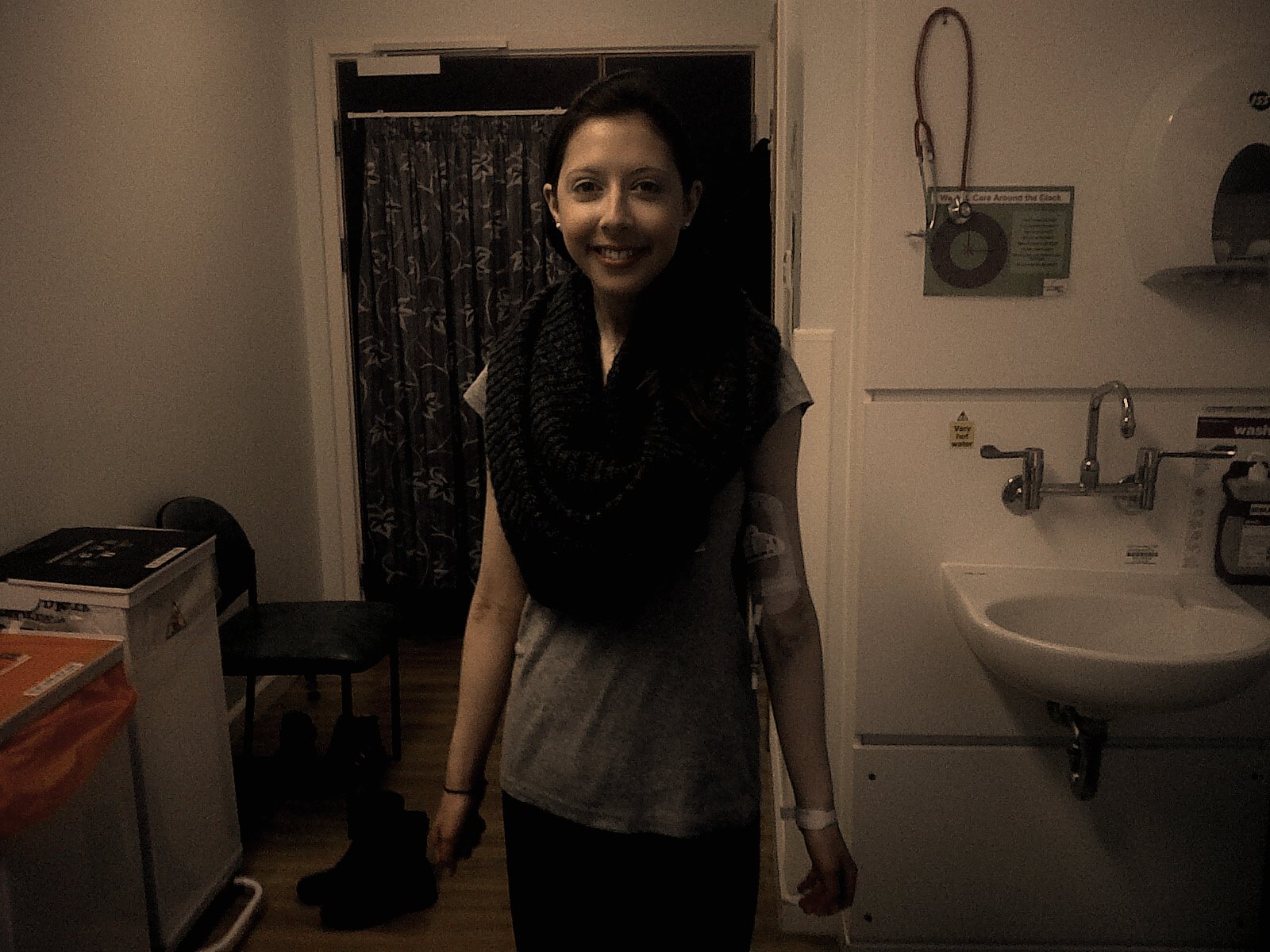On this day last year I got a call.
It was my GP (I’ve only met him once.)
‘The results of your blood test are here. We think there’s been a mix-up with the samples. You can’t possibly be so severely anaemic. Can you come in again to be re-tested?’
I had been ill for over a month. The glands in my neck had swollen up; there were solid lumps on either side. I had pains in my back and ribs, recurrent fevers, a sore throat. I was tired like I’d never been before. My entire body ached; I could barely move. But every time I rang the doctor’s surgery, the receptionist told me the next available appointment was in two weeks’ time. So I went to a walk-in weekend clinic and waited for several hours in a swarm of hysterical toddlers.
The first time the doctor was friendly, in an all-girls-together kind of way.
‘Everyone worries about swollen glands, like it might be – you know – cancer – or something,’ she smiled, and prescribed me a course of antibiotics.
‘You’ll be fine in no time at all,’ she said. ‘Look at you! Glowing with health!’
‘It’s make-up,’ I replied.
‘You have to tell me which products you use!’
She was wrong. I didn’t make a miraculous recovery. And the surgery were still ‘booking for two weeks time, sorry,’ so I went back to the walk-in clinic the following weekend. My glands were visibly swollen, protruding from my neck. But it was January, and the clinic was overrun with rugby players who had succeeded in injuring themselves at the first session of the new year, so I was told that all the doctors had more serious cases to deal with. After several hours’ wait I was seen by a nurse, who barely glanced at me, and prescribed another course of antibiotics.
Eventually I achieved the hitherto impossible; I secured an actual appointment at my local surgery. Not with my GP – I wasn’t granted an audience with the man himself – but a student doctor who was standing in for someone else. She examined me briefly and said that ‘swollen glands can take a while to go down, sometimes.’ It had been over three weeks by this point. The following week I came back and was seen by another doctor – another doctor who didn’t work there, but was standing in for someone else.
By this time I was scared.
‘I’ve never felt like this before,’ I remember saying to my dad. I was shocked. I had been ill before, had the flu, like everyone else. But now I was too weak to hang my socks on the radiator.
So I asked the doctor if I could have a blood test. I’d been googling symptoms and was convinced I had glandular fever.
Fast-forward three days later, and I’ve just been told that the blood test has to be redone. I’m about to leave the house when I get another call – another doctor from the surgery. She has a kind voice.
‘The test shows a negative result for glandular fever,’ she says.
I breathe out, a sigh of relief. After all, glandular fever is the worst affliction imaginable.
‘But I think you need to go to A&E straightaway,’ she says, hurriedly. ‘Get another test. Just to check that it’s, you know, definitely not glandular fever.’
I find my keys, bag, shut the front door, walk up the street, with an odd ringing sensation in one ear. I see a family friend walking on the other side of the road, walking in her long grey winter coat, her dour expression. She doesn’t see me. Usually I’d stop to say hello. But my ear is ringing and ringing and I’m struggling to breathe. I take the bus to my local hospital.
I don’t have to wait long to be seen. The kind-voiced doctor has already called up A&E. Thank God; I’ll be out in a couple of hours, at most.
I don’t know it then, but it’s going to be a while before I step outside a hospital ward.


